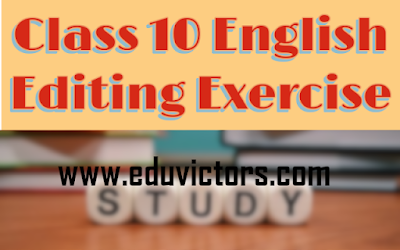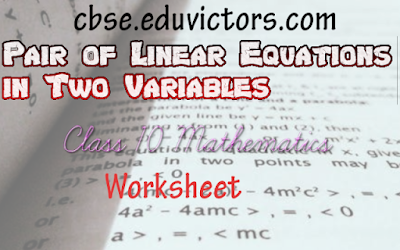English Grammar - Editing Exercise
Class 10 - English
The following passage has not been edited. There is one error in each of the lines. The incorrect line has been underlined. Replace the underlined word choosing the most appropriate option from those given below.Exercise:
Gandhiji was a prolific writer who (a) spend several hours (b) in day writing. He (c) writes for the journals, he edited. He wrote letters, speeches (d) with reports. He used the print medium (e) for spread his message. His personal (f) letter were even more powerful. He used (g) a powerful medium to reinforce his views (h) for life.









